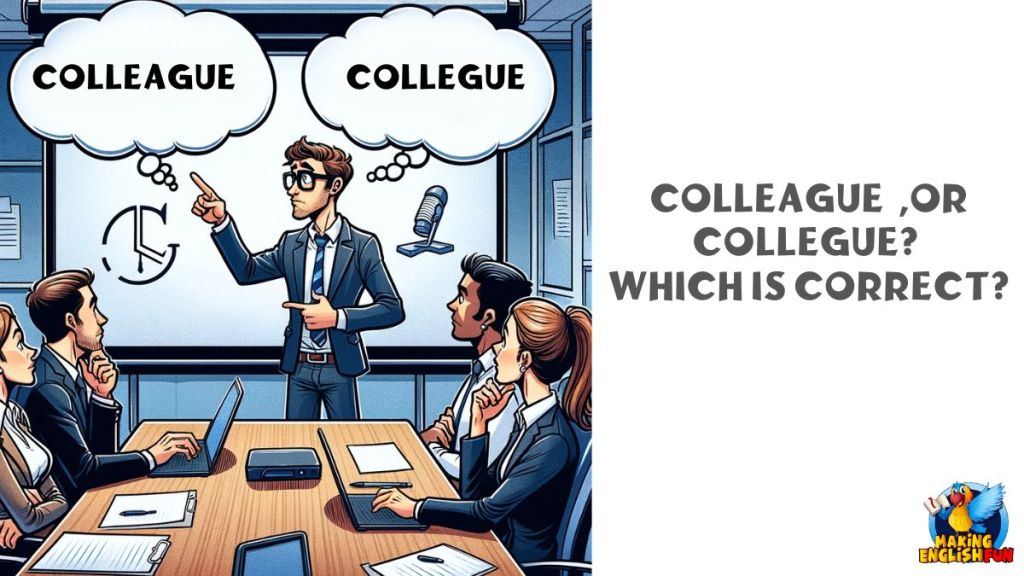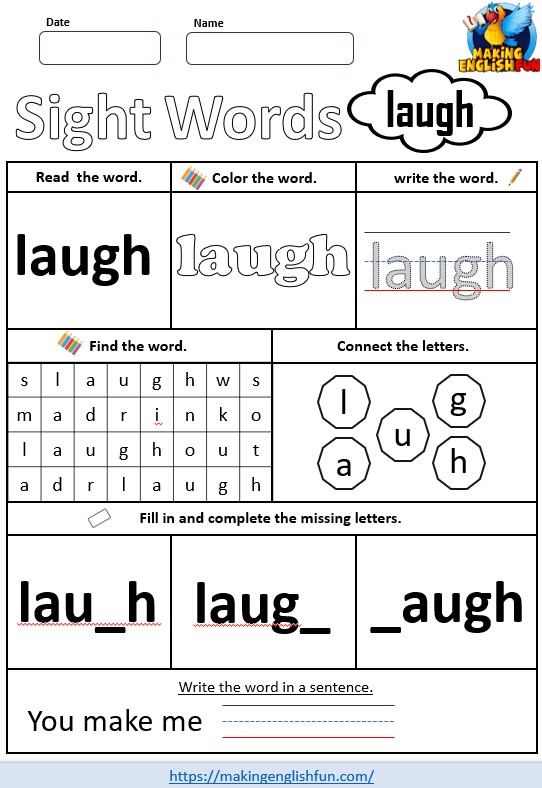Colleague or Collegue? Which Spelling Is Correct?
In English, differentiating between “Colleague” and “Collegue” can be a common spelling challenge.
This confusion primarily arises from their similar pronunciation, leading to frequent mix-ups in both written and verbal communication, and of course how easy it is to mix up English vowels!
This article will explain the correct spelling and usage of this word, often used to refer to a fellow worker or professional associate.

Correct Spelling and Definition
The correct spelling is “Colleague,” with ‘lea’ in the middle.
A colleague is a person with whom one works in a profession or business, often implying a status of equality or commonality in rank or function.
For example, “She discussed the project with her colleagues.”
Common Spelling Error: Collegue
The misspelling “Collegue” is a frequent error but incorrect.
This mistake might result from misinterpretation of the word’s pronunciation, leading some to replace ‘lea’ with ‘legu.’
However, the correct form, “Colleague,” follows the standard spelling pattern derived from its etymological background.
Etymology and Historical Development
“Colleague” comes from the Latin word “collega,” which means a partner in office or a fellow worker.
This term is derived from “com-” (together) and “legare” (to depute or to choose). The spelling with ‘lea’ in “Colleague” has been influenced by its Latin origins and has been consistent in its usage in English.
Understanding this historical background helps in grasping why it’s spelled with ‘lea’ instead of ‘legu.’
Usage in Different Contexts
A “Colleague” is commonly used to refer to someone you work with. This term is applicable in a wide range of professional settings.
- For example, in a corporate office, you might say, “I will schedule a meeting with my colleagues to discuss the project.”
- In academic contexts, it could be used as in, “Her colleagues in the department praised her research work.”
These examples show how “Colleague” is used to indicate professional or work-related relationships.
Comparison with Other Common Spelling Confusions
The confusion over “Colleague” is similar to other common English spelling challenges.
Words like “privilege” (often misspelled as “priviledge”) and “definitely” (frequently misspelled as “definately”) also see similar errors.
Below is a comparison table:
| Correct Spelling | Common Incorrect Spelling |
|---|---|
| Colleague | Collegue |
| Privilege | Priviledge |
| Definitely | Definately |
This comparison table demonstrates how easy it is to misspell words due to incorrect phonetic interpretation or unfamiliarity with their origins.
We also have loads of other common misspelled words
Tips for Remembering the Correct Spelling
Remembering the correct spelling of “Colleague” can be easier if you think of the phrase “co-LEAGUE.”
This mnemonic links the idea of a colleague being a member of your ‘league’ or team at work, which can help you recall the ‘lea’ in the middle of the word.
Additionally, regular use of the word in your writing and communication will reinforce the correct spelling.
Conclusion
In conclusion, the correct spelling of this term, crucial in professional and academic contexts, is “Colleague” with ‘lea’ in the middle.
Accurate spelling is key to clear communication and maintaining professional standards.
Being attentive to common spelling errors and learning from them enhances your proficiency in English.
FAQs or Reader Questions
Q1: Are there any other words related to professional relationships that are commonly misspelled?
Yes, words like “supervisor” (sometimes misspelled as “superviser”) and “colleague” (often misspelled as “collegue”) are frequently misspelled in the context of professional relationships.
Q2: How can I improve my spelling of workplace vocabulary?
Familiarize yourself with common professional terms and their correct spellings through regular reading of business-related materials, practice writing them in your communications, and use spelling tools or apps for reinforcement.
Q3: Is it important to spell names of professions and titles correctly?
Yes, spelling names of professions and titles correctly is crucial as it shows respect and professionalism, and ensures clear and accurate communication.
Q4: Can learning the origins of work-related words help in their spelling?
Understanding the origins of work-related words can offer insights into their correct spelling and enhance your overall vocabulary and language skills.
Q5: Does consistent spelling matter in digital communication at work?
Consistent and correct spelling is important in digital communication at work as it contributes to the clarity of the message and reflects on your professionalism and attention to detail.







